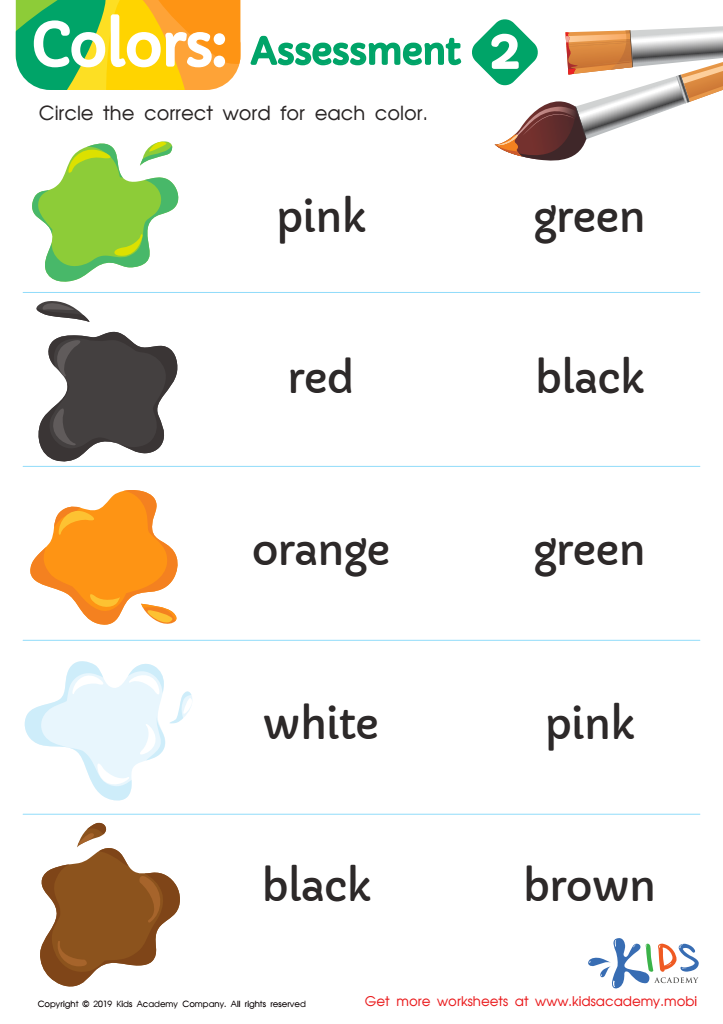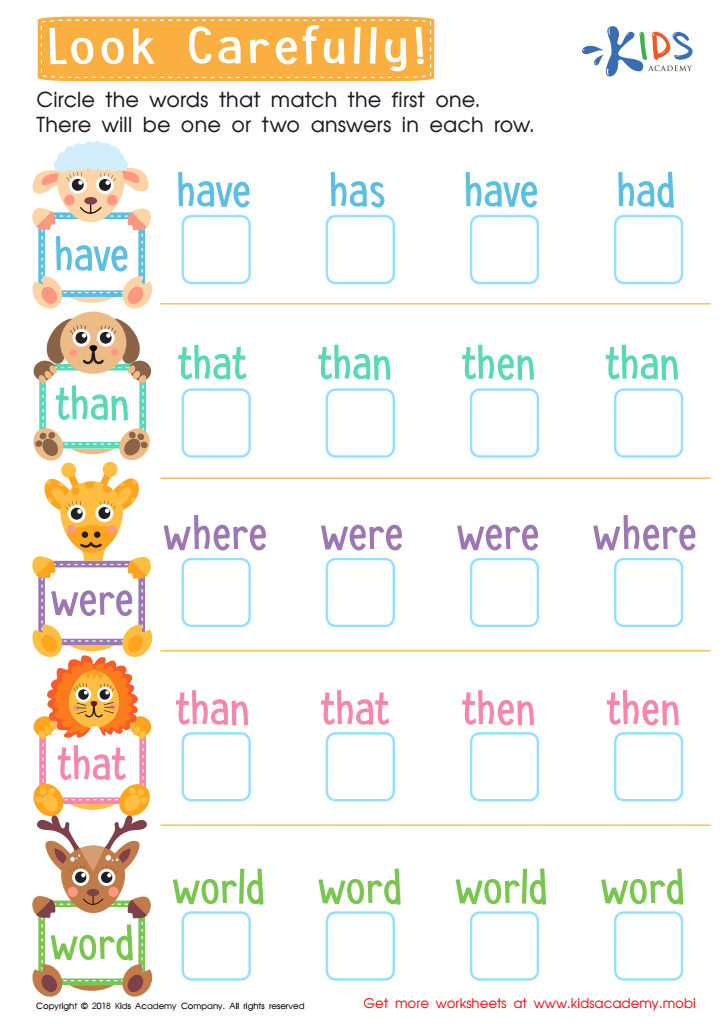Attention to Detail Building Vocabulary Worksheets for 7-Year-Olds
3 filtered results
-
From - To
Enhance your 7-year-old's vocabulary with our "Attention to Detail Building Vocabulary Worksheets." Designed specifically for young learners, these engaging worksheets focus on developing observation skills and enhancing language comprehension. Each activity encourages kids to pay close attention to words, contexts, and meanings, making vocabulary learning a fun and interactive experience. With colorful illustrations and age-appropriate exercises, your child will discover new words while improving critical thinking and attention to detail. These worksheets not only build vocabulary but also foster a love for reading. Start your child's journey to becoming a confident communicator today with our expertly crafted materials!


Colors: Assessment 2 Worksheet


Look Carefully Worksheet
Attention to detail and vocabulary building are crucial aspects of a 7-year-old's education that parents and teachers should prioritize. At this age, children are developing foundational skills that will serve them throughout their academic journey and beyond.
Firstly, fostering attention to detail cultivates critical thinking and problem-solving abilities. Children who learn to notice small components in text or tasks can more effectively engage with complex concepts, enhancing comprehension and adaptability in various subjects.
Secondly, vocabulary building plays a significant role in language development. A rich vocabulary not only improves reading and writing skills but also boosts communication abilities. When children express themselves clearly, they gain confidence, which in turn encourages participation in discussions and collaborative activities.
Moreover, strong vocabulary and attention to detail aid in academic performance across subjects, from reading comprehension in language arts to understanding mathematical concepts. Parents and teachers can nurture these skills through interactive reading, engaging discussions, and games designed to sharpen observational abilities and encompass new words.
Ultimately, by emphasizing attention to detail and vocabulary, parents and teachers invest in their children’s ability to succeed academically, think critically, and communicate effectively throughout their lives.

 Assign to My Students
Assign to My Students






























